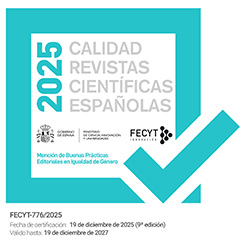Cosmopolitan Identity Formation and Consumer Culture: A Study of Ndibe’s Foreign Gods, Inc.
DOI:
https://doi.org/10.17561/grove.v31.7036Keywords:
Globalisation, Capitalism, Aesthetico-cultural cosmopolitanism, Identity formation, Okey Ndibe, Foreign Gods, Inc.Abstract
The dream of a cosmopolitan utopia and the idea of being locally situated yet globally connected has never seemed more plausible than today. Globality has made the vast supermarket of goods, home decor and exotic items locally available to consumers, irrespective of their geographical setting. The consumption of such goods from around the world has made so-called cosmopolitanism possible. In a way, Cosmopolitanism has acted as an emancipatory force capable of overcoming global inequalities. However, recent global economic trends suggest a contradictory nature of “capitalism-tamed-cosmopolitanism”. Through the study of Okey Ndibe novel Foreign Gods, Inc. (2014), the article argues that capitalism, which is an intrinsic element in global processes, tends to reproduce divisions, which cosmopolitanism claims to dissolve. The paper also addresses the nuances of Aesthetico-cultural cosmopolitanism and its role towards identity formation. The analysis of the text suggests that there is a difference between ‘cosmopolitanism of having’ and ‘cosmopolitanism of being’.
Downloads
References
Appiah, Kwame Anthony. “Cosmopolitan Patriots.” Critical Inquiry, vol. 23, no. 3, 1997, pp. 617–39. http://www.jstor.org/stable/1344038. Accessed 1 Dec. 2022.
Baudrillard, Jean. The Consumer Society: Myths and Structures. Sage, 1998.
Bauman, Zygmunt. “Çalışma, Tüketicilik ve Yeni Yoksullar.” Trans. Ümit Öktem. Sarmal Yayınevi, 1999.
Beck, Ulrich. Cosmopolitan vision. Polity, 2006.
Binnie, Jon, and Beverley Skeggs. “Cosmopolitan knowledge and the production and consumption of sexualized space: Manchester's gay village.” The Sociological Review, vol. 52, no. 1, 2004, pp. 39–61. https://doi.org/10.1111/j.1467-954X.2004.00441.x
Calhoun, Craig. “The class consciousness of frequent travellers: towards a critique of actually existing cosmopolitanism.” Conceiving Cosmopolitanism, edited by Steven Vertovec, and Robin Cohen, Oxford University Press, 2002, pp. 86–109.
Calhoun, Craig. “Cosmopolitan Liberalism and Its Limits.” European Cosmopolitanism in Question, edited by Roland Robertson, and Anne Sophie Krossa, Palgrave Macmillan, 2012, pp. 105-25.
Cheah, Pheng. Inhuman Conditions: On Cosmopolitanism and Human Rights. Harvard University Press, 2006.
Cicchelli, Vincenzo, and Sylvie Octobre. “The Seven Pillars of Aesthetico-Cultural Cosmopolitanism.” Aesthetic Cosmopolitanism and Global Culture. Brill, 2019, pp. 46-65. https://doi.org/10.1163/9789004411487_004.
Conradson, David, and Alan Latham. “The Affective Possibilities of London: Antipodean Transnationals and the Overseas Experience.” Mobilities, vol. 2, no. 2, 2007, pp. 231–54. https://doi.org/10.1080/17450100701381573.
Dharwadker, Vinay. “Diaspora and Cosmopolitanism.” The Ashgate Research Companion to Cosmopolitanism, edited by Maria Rovisco, and Magdalena Nowicka, Ashgate, 2011, pp. 125-44.
Firat, Aytekin, et al. “Consumption, consumer culture and consumer society.” Journal of Community Positive Practices, vol. 13, no. 1, 2013, pp. 182-203. http://acikerisim.pau.edu.tr:8080/xmlui/handle/11499/26892. Accessed 26 Feb. 2022.
Greenblatt, Stephen. Renaissance Self-Fashioning: From More to Shakespeare. University of Chicago Press, 1980.
Hage, Ghassan. “At home in the entrails of the west: multiculturalism, ethnic food and migrant home-building.” Home/World: Space, Community and Marginality in Sydney’s West, edited by Helen Grace, Ghassan Hage, Lesley Johnson, Julie Langsworth, and Michael Symonds, Pluto Press, 1997, pp. 99–153.
Hage, Ghassan. White nation: Fantasies of white supremacy in a multicultural society. Pluto Press, 1998.
Heldke, Lisa. Exotic Appetites. Ruminations of a Food Adventurer. Routledge, 2003.
Holton, Robert. “Capitalism and Cosmopolitanism.” Cosmopolitanism in Hard Times. Brill, 2020, pp. 383-94. https://doi.org/10.1163/9789004438026_029.
Inglis, David. “The Clash of Cosmopolitanism. The European Union from Cosmopolitization to Neo-Liberalization.” Partecipazione e Conflitto, vol. 8, no. 3, 2015, pp. 736–60. https://doi.org/10.1285/i20356609v8i3p736
Jubas, Kaela. “Conceptual confusion in democratic societies: Understandings and limitations of consumer-citizenship.” Journal of Consumer Culture, vol. 7, no. 2, 2007, pp. 231-54. https://doi.org/10.1177/1469540507077683
Kendall, Gavin, Ian Woodward, and Zlatko Skrbis. The sociology of cosmopolitanism: Globalization, identity, culture and government. Springer, 2009.
Marx, Karl, and Friedrich Engels. The Manifesto of the Communist party. International Publishers, 2007.
Molz, Jennie Germann. “Cosmopolitanism and Consumption.” The Ashgate Research Companion to Cosmopolitanism, edited by Maria Rovisco, and Magdalena Nowicka, Routledge, 2011, pp. 33-52. https://www.routledgehandbooks.com/doi/10.4324/9781315612850.ch2. Accessed 23 Feb. 2022.
Ndibe, Okey. Foreign Gods, Inc. Soho Press, 2014.
Olopade, Dayo. “Go West, Young Men.” Transition, no. 100, 2008, pp. 134-51. http://www.jstor.org/stable/20542545. Accessed 28 Feb. 2022.
Robinson, Cedric. Black Marxism: The making of the Black radical tradition. University of North Carolina Press, 2000, pp. 9-28. http://racialcapitalism.ucdavis.edu/wp-content/uploads/2017/09/robinson-black-marxism-selections.pdf. Accessed 15 Feb. 2022.
Sklair, Leslie. The transnational capitalist class. Oxford Press, 2001.
Szerszynski, Bronislaw, and John Urry. “Cultures of cosmopolitanism.” The Sociological Review, vol. 50, no. 4, 2002, pp. 455-81. https://doi.org/10.1177%2F003802610205000401.
Skrbis, Zlatko, and Ian Woodward. “The ambivalence of ordinary cosmopolitanism: Investigating the limits of cosmopolitan openness.” The sociological review, vol. 55, no. 4, 2007, pp. 730-47. https://doi.org/10.1111/j.1467-954X.2007.00750.x.
Vertovec, Steven, and Robin Cohen. “Conceiving cosmopolitanism.” Conceiving Cosmopolitanism: Theory, Context and Practice, edited by Steven Vertovec, and Robin Cohen, Oxford University Press, 2002, pp. 1–22.
Wonicki, Rafał. “Cosmopolitanism and liberalism: Kant and contemporary liberal cosmopolitanism.” Synthesis philosophica, vol. 29, no. 3, 2016, pp. 271-80. https://hrcak.srce.hr/en/file/75555. Accessed 10 Feb. 2022.
Woodward, Ian, and Zlatko Skrbiš. “Performing cosmopolitanism. The context and object framing of cosmopolitan openness.” Routledge International Handbook of Cosmopolitanism Studies. Routledge, 2018, pp. 129-39.
Wright, David. “Cultures and Consumption.” An Introduction to Sociology, edited by Karim Murji, Sarah Neal, and John Solomos. Sage, 2021, pp. 345-59.
Published
Issue
Section
License
Copyright (c) 2024 Nishtha Pandey

This work is licensed under a Creative Commons Attribution 4.0 International License.
Authors who publish with this journal agree to retain copyright and grant the journal right of first publication with the work simultaneously licensed under a Creative Commons Attribution License that allows others to share the work with an acknowledgement of the work's authorship and initial publication in this journal. Also, authors will retain the rights on their work, even if they will be granting The Grove. Working Papers on English Studies a non-exclusive right of use to reproduce, edit, distribute, publicly communicate and show their work. Therefore, authors are free to engage in additional, independent contracts for non-exclusive distribution of the works published in this journal (such as uploading them to an institutional repository or publishing them in a book), as long as the fact that the manuscripts were first published in this journal is acknowledged.

























